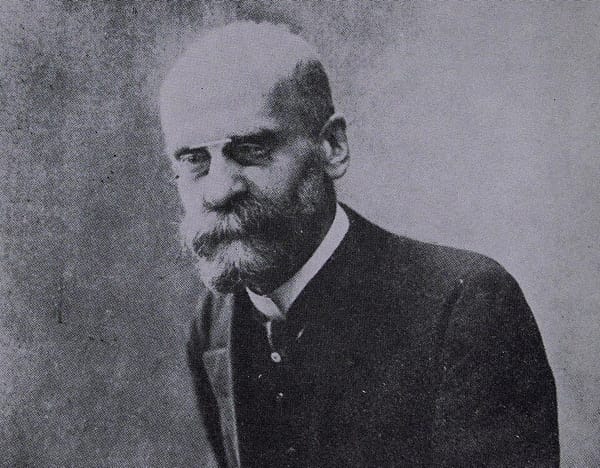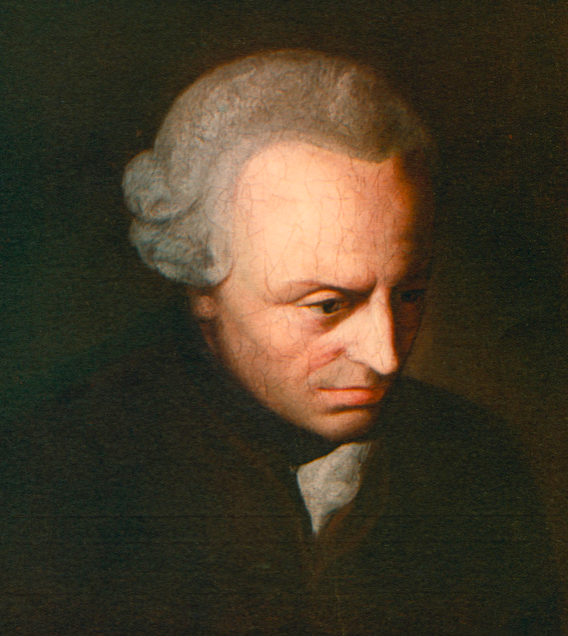Does God cause the grass to grow?
Is it truly God that causes the grass to grow? Is not the growth of such grass fully explained by science? If matter provides a sufficient explanation, how can God be regarded as the cause?

You cause the grass to grow for the livestock and plants for man to cultivate, that he may bring forth food from the earth and wine to gladden the heart of man, oil to make his face shine and bread to strengthen man's heart. (Psalm 104:14-15, ESV)
Reading such verses makes the modern man hesitate. Is it truly God that causes the grass to grow? Is not the growth of such grass fully explained by science? Are not its causes the atomic and chemical constituents, that comprise the grass, soil, and air, acting under the blind and unconscious Laws of Physics. If matter provides a sufficient explanation, how can God be regarded as the cause?
Well, we could understand this verse metaphorically. Perhaps God, as the author of the Laws of Physics, is an indirect cause. However, I would question the key premise behind this formulation. Such formulations presume a self-operating universe, or a universe with the capability to do so. A common metaphor to liken such a universe is frequently that of a clockwork machine which, once wound up, proceeds by itself without any further input from its (human) Maker. All subsequent activity can be explained by its parts and their motion. This particular philosophy has its roots in the Late Medieval period. It was born then and came to fruition in the Early Modern period alongside the birth of Modern science. We are speaking of Deism. The belief that God designed and started the universe but then left it largely to its own devices, and the various variants of atheism which reject the need for a designer and starter of the universe, all depend on this premise.
This very premise is rejected by theism which instead gives God an active role in sustaining and upholding the universe. There are different variants of theism including occasionalism and more mainstream formulations. Occasionalism is the belief that God is the one and only cause and explanation needed for the state of the universe. I find this belief difficult to reconcile with science which has explained, at least in part, observed effects in terms of material causes. Mainstream theism is instead the belief that both God and material causes play a role. The question is: Is such theism consistent with scientific explanations?
To determine this, let us first consider the following argument for atheism:
- Phenomena X is fully explained by matter and scientific laws.
- Matter exists independently of God, and scientific laws “operate” independently of God.
- Therefore, it is unnecessary to invoke God to explain X
Repeat this same syllogism for every X, and God becomes either redundant or non-existent. God merely remains in the ‘gaps’ of our scientific knowledge. What a small God this would be!
Premise 2 is the crucial step. One could quibble about the word “operate”. Indeed, there are numerous atheistic or deistic philosophies of physics, and some would object to this phrasing. However, each of them by requirement provides an explanation of the regularity in the universe. In such cases, the premise can be re-worded for consistency with said explanation. The concern of this essay, however, is the phrase independently of God. It is this part of the premise that contradicts theism.
Instead the theist would replace the atheistic premise (Premise 2) with something resembling
- Scientific law is a description of God’s activity sustaining the universe, aligning with the efficient and final causes of material substances.
The conclusion in favour of atheism does not logically follow with this second premise. The efficient cause, pointing to a new physical state, describes what the substance emerged from. A state is a complete-as-possible representation of the physical particle as might actually exist in a moment of time. The final cause describes the possible states a substance could decay into each possible circumstance. A deterministic universe only has a single final cause for each circumstance. An indeterminate universe, meaning we can’t precisely predict but only assign probabilities to a list of options, has manifold final causes. The remaining ingredient is the event which describes the transformation from initial to final states. This is where God plays a role. In both deterministic and indeterminate universes, God’s action and power initiates the event. In an indeterminate universe, God additionally selects which outcome occurs.
A real life example of the second theist premise may be found as follows. In a certain type of radioactive decay, a down quark decays into an up quark and W- Boson (all types of sub-atomic particle). The W- Boson subsequently decays into an electron and an anti-electron neutrino. Each such decay is spontaneous. Given knowledge of particle states, we are unable to predict when they occur—or even if they occur! There are alternative final causes. With enough energy, the W-Boson could decay into a muon and an anti-muon neutrino. Here, the efficient cause is the down quark. There are manifold possible final causes, including the electron and anti-electron neutrino. There are two events transporting from initial to final states, whose timing and nature cannot be predicted from even perfect knowledge of physical states.
Why might something be unpredictable? Some might say it is random, using the word to terminate future enquiry. This begs many additional questions. What is meant by random? Why can we nonetheless calculate probabilities for each decay channel, predicting the frequency of each possible decay after the experiment is repeated sufficiently many times? The word random suggests a breakdown in rationality. If we need to qualify the randomness to explain why some decays are more probable than others, then random is no longer enough to end a chain of explanation.
The second reason something may be unpredictable is if there are additional unknown facts influencing the outcome. If we do not know of a cause, we cannot use it to make an accurate prediction.
Could these additional facts be hidden variables parametrising matter? This is difficult due to the phenomena of entanglement. Entanglement describes correlations between two observations separated in space but not time. For example, a particle might decay into two other particles, which then speed towards the detectors. These daughter particles have a measurable property unfortunately named spin (the formalism describing spin has a similar mathematical structure to that describing angular momentum, but spin doesn’t arise from rotation). Spin can be measured around the three different spatial axes, x,y, or z, or any angle between them. In each orientation, it can take two values, spin-up or spin-down. Spin is constrained by a conservation law, so the two daughter particles need to have opposite spin on each axis. So far, it seems this spin along each axis would be determined at the moment of decay. But the sub-atomic theory forbids this. The state parametrising spin-up along the x-axis is a superposition of the spin-up and spin-down states along the y or z axes, meaning we might measure either result. The spin along the y-axis is undetermined if the x-spin is precisely known. J.S. Bell (and others from different premises) investigated this, concluding that one of various assumptions must be violated, including: physical hidden variables, locality, independence of the detectors, and that there is a single measurement result. Locality of interactions between physical states underlies special relativity, backed up by numerous experiments. The least problematic assumption to reject is that there are hidden variables parametrising material states.
The remaining alternative is that this unpredictability is explained by an unknown cause. The material causes are all known—so that leaves an immaterial cause—perhaps God. Physical theory is only able to construct conceptions around space, time, and material substances existent within space and time. Anything beyond space-time influencing physical events is not and cannot be modelled by the theory. The influence of such a cause would be an unknown factor, unexplained by the equations, perhaps leading to indeterminism. The omnipresence of God suggests He is unconstrained by locality [space], able to induce correlations over distance. The perfect free will of God implies he possesses the ability to select different outcomes in a given event. Although assuming that God has no reason to favour one outcome over another (which a theist would say is violated in the case of miracles), the probability for each outcome would reflect symmetries which in turn reflect the nature and constancy of God.
So, there are three types of causality present in any physical interaction. Efficient substance causality lists the material substances in the initial state. Final substance causality lists the material substances which could be present in the possible final states. Event causality explains why the event occurred at that time, and why it produced that particular outcome. A possible way to reconcile theism and science is the proposal that event causality describes the actions of God in sustaining the universe. If true, we would say God causes the grass to grow and science describes how He does it.
Part of the debate between atheism and theism should prioritise discussions concerning which version of Premise 2 accurately reflects reality. I think the atheist Premise 2 is too frequently taken for granted. It needs evidence and supporting arguments. We should consider how the Laws of Physics would be structured if Premise 2 was true and compare the structure against the laws deduced from the experimental sciences. We should then repeat this process for the theist Premise 2 and equivalents in any other world-view. We might not get a definitive answer from these comparisons but it will be certainly be fun to try.
by Dr Nigel Cundy (https://www.quantum-thomist.co.uk)
Dr Nigel Cundy received his undergraduate degree in Physics and his doctorate in Theoretical Physics from the University of Oxford. Thereafter, he held research positions in Germany and South Korea before returning to the UK towards the end of 2015. He has spent approximately 15 years researching and teaching fundamental particle physics, authoring over fifty academic publications and delivering numerous presentations at conferences and seminars. His research focuses on theoretical computer simulations of quantum field theory—a synthesis of quantum mechanics and special relativity that underpins the most successful modern theories of physics. He has taught courses in relativistic quantum mechanics, general relativity and quantum field theory, among others.
Since first engaging with the writings of Thomas Aquinas as a graduate student, he has maintained an amateur interest in classical philosophy. This interest led him to study and research Plato, Aristotle and more recent figures in the Thomist tradition—most notably Edward Feser, David Oderberg and Étienne Gilson—thereby complementing his expert knowledge of fundamental physics with a strong grounding in classical philosophical thought.




